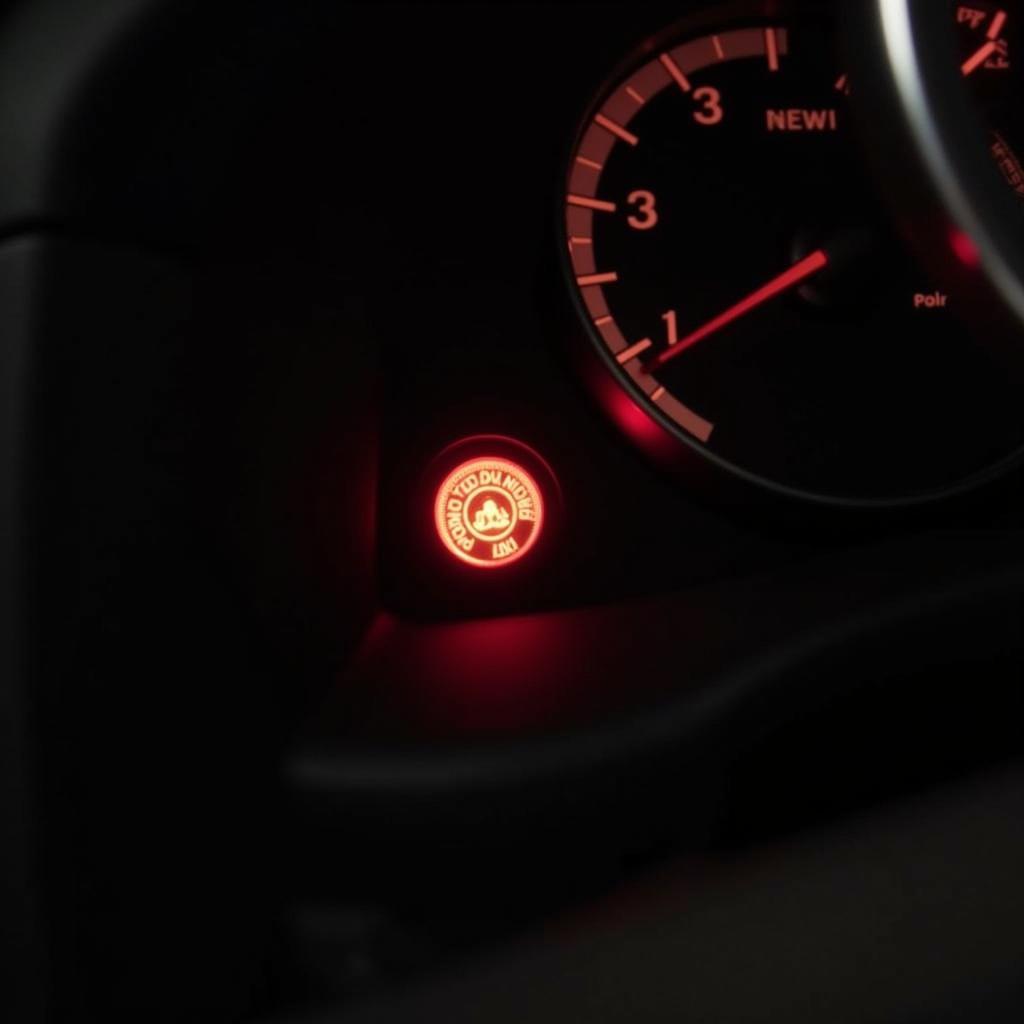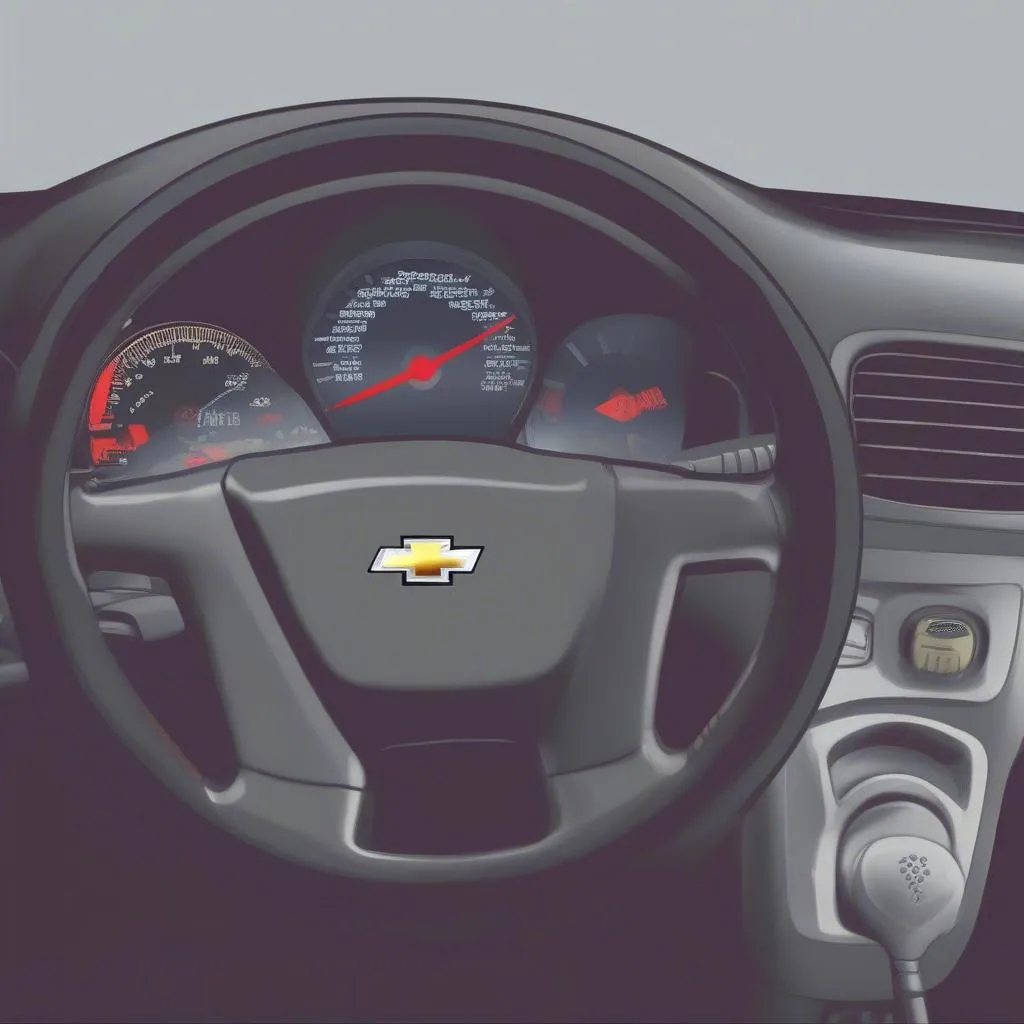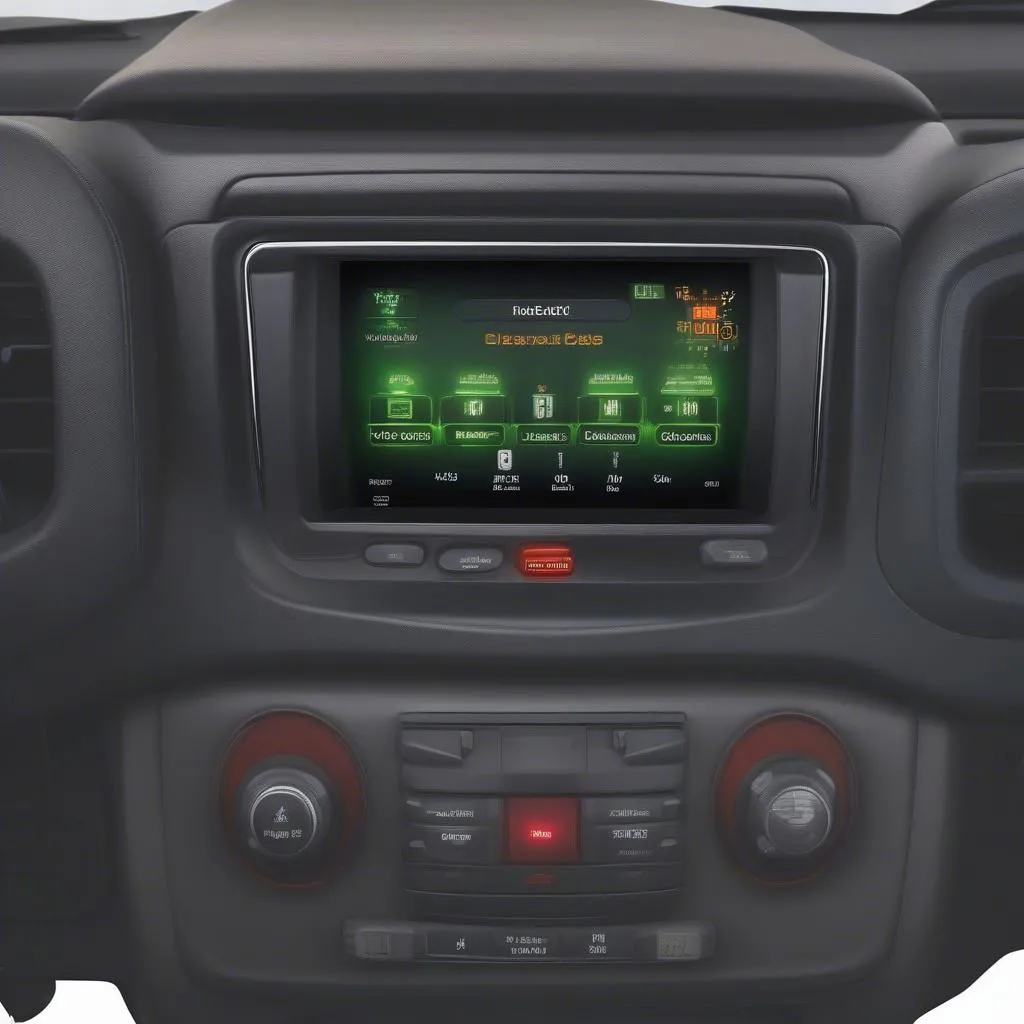The brake warning light on your Jeep JK is a crucial safety feature, alerting you to potential issues within your braking system. Ignoring this warning light could lead to reduced braking performance and potentially dangerous situations. This article delves into the most common reasons behind a glowing brake warning light on your JK, providing you with the knowledge to address these issues effectively.
 Brake Warning Light on Jeep JK Dashboard
Brake Warning Light on Jeep JK Dashboard
Understanding Your JK’s Brake System
Before we jump into the common culprits, it’s helpful to understand the basics of your JK’s braking system. It’s comprised of several key components, including:
- Hydraulic System: This system uses brake fluid to transmit force from the brake pedal to the wheels, slowing or stopping the vehicle.
- Brake Pads and Rotors: When you press the brake pedal, the brake pads clamp down on the brake rotors, creating friction to slow the vehicle.
- Anti-lock Braking System (ABS): The ABS prevents the wheels from locking up during hard braking, helping you maintain steering control.
- Electronic Stability Program (ESP): The ESP works in conjunction with the ABS to maintain stability and traction, especially on slippery surfaces or during emergency maneuvers.
Common Causes of Brake Warning Lights on JK
Now, let’s explore the most common reasons why your JK’s brake warning light might be on:
1. Low Brake Fluid
What it means: This is perhaps the most frequent culprit. Your JK’s brake fluid level might be low due to a leak in the system or simply because it’s time for a brake fluid flush.
What to do: Check your brake fluid reservoir. If the fluid level is low, add the appropriate brake fluid recommended in your JK’s owner’s manual. If you notice a significant drop in fluid level or have to top it off frequently, it indicates a leak that needs immediate professional attention.
2. Worn Brake Pads
What it means: Brake pads wear down over time due to friction. Most JKs have wear indicators built into the brake pads that make a squealing sound when the pads are thin, signaling the need for replacement.
What to do: If you hear squealing or grinding noises when applying the brakes, it’s crucial to have your brake pads inspected by a qualified mechanic. Ignoring this can lead to expensive rotor damage.
3. Faulty ABS Sensor
What it means: The ABS system relies on sensors at each wheel to monitor wheel speed. A faulty sensor can disrupt the ABS functionality, triggering the warning light.
What to do: Diagnosing a faulty ABS sensor often requires specialized equipment. If you suspect an issue with your ABS, it’s best to have your JK diagnosed by a professional technician who can read the ABS fault codes.
4. Malfunctioning Brake Caliper
What it means: The brake caliper houses the brake pads and pistons. A sticking caliper can cause the brake pads to drag on the rotor, leading to uneven braking and potential overheating.
What to do: A sticking caliper might manifest as a burning smell, pulling to one side, or reduced fuel efficiency. If you experience any of these symptoms, have your brake calipers inspected and repaired or replaced as necessary.
5. Issues with the Brake Master Cylinder
What it means: The brake master cylinder is responsible for converting the force you apply on the brake pedal into hydraulic pressure. A failing master cylinder can lead to a soft or spongy brake pedal feel.
What to do: If you notice a change in brake pedal feel or if the pedal sinks to the floor, it indicates a potential problem with the master cylinder. Seek immediate professional assistance to diagnose and address this issue.
Conclusion
The brake warning light on your Jeep JK should never be ignored. By understanding the common causes and taking prompt action, you can help ensure the optimal performance and safety of your JK’s braking system. Remember, regular maintenance, including timely brake fluid flushes and brake pad replacements, is crucial in preventing many of these issues.


